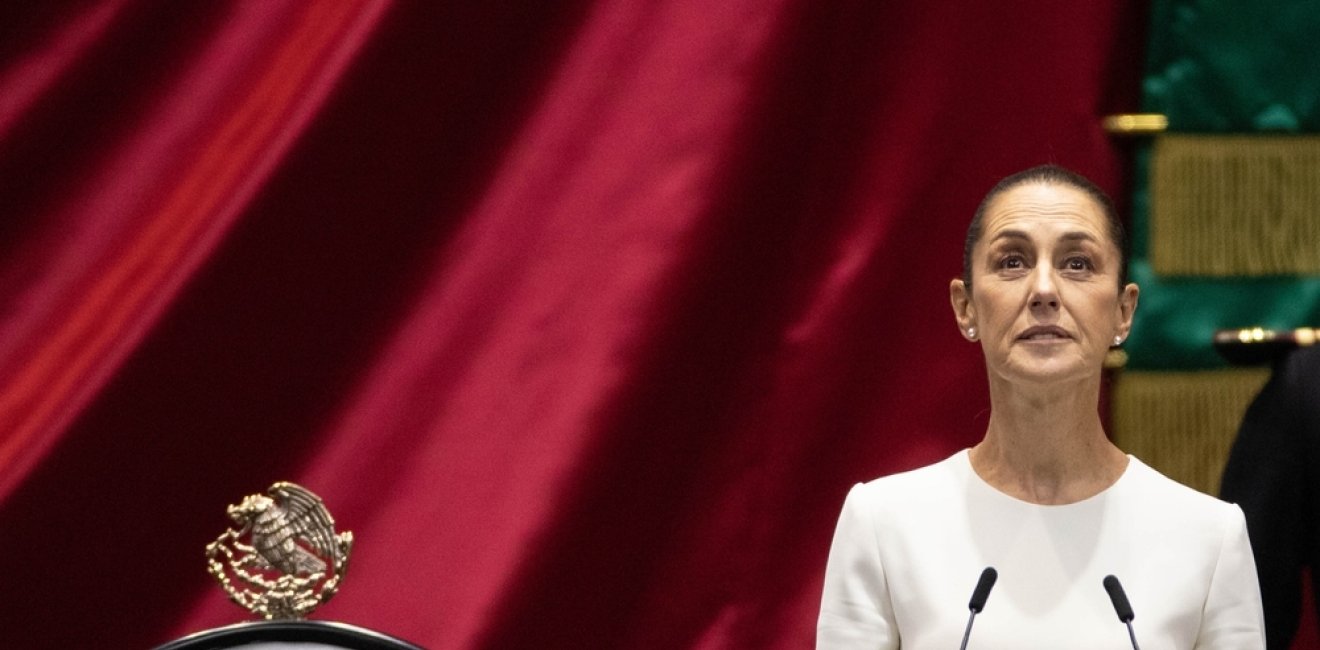Several constitutional amendments based on austerity and organizational simplification are under serious consideration in Mexico’s Chamber of Deputies. These proposed changes would dissolve regulatory bodies overseeing competition, telecommunications, energy, and transparency and transfer their regulatory functions to various Executive Branch ministries. Antitrust functions, for instance, would apparently move to the Commerce Ministry; however, specifics will come via modifications to subject matter laws such as the Competition and Telecommunications Acts.
It is worth noting that several competition agencies worldwide, as well as telecommunications and energy regulators, operate within ministries while maintaining a high level of respect and effectiveness, the Antitrust Division of the U.S. Department of Justice being one of them. So, why the concerns about this new institutional antitrust setting? They center on the political motivations driving this proposed reform in returning discretionary regulatory powers to the Executive.
During President López Obrador’s mandate, Mexico’s antitrust agency (COFECE) counterbalanced certain government actions, particularly in the electricity sector, where constitutional and legal provisions —except for the transmission grid —mandate competition. However, López Obrador pursued a state-owned enterprise (SOE) model that curtails competition by restricting third-party grid access and enforcing regulations limiting market entry. On the grounds of competition, some players, including the antitrust agency, successfully challenged several of these measures in court to the President’s dissatisfaction. On February 5 this year, a day after the Supreme Court blocked a reform to the Electricity Act for hindering competition, López Obrador introduced this package of constitutional reforms.
In my view, and against this backdrop, if absorbed into the Executive branch, COFECE is at risk from political pressures and a loss of independence over antitrust decisions. Safe havens against anticompetitive enforcement from political connections could see an uneven application of antitrust law. This could be especially the case where the government has direct market participation through SOEs. Beyond energy, the Mexican government has expanded direct involvement to other sectors in recent years, including the telecommunications and airline industries.
COFECE’s current institutional design protects its autonomy, ensuring no individual can influence its agenda, processes, or sanctions unilaterally. As such, it is a reference point in Latin America and has garnered international recognition for its highly technical capacity and independence. It has also been ranked as one of the 15 best agencies in the world by the Global Competition Review and one of the most independent in decision-making processes.[1]
COFECE’s global standing starkly contrasts the energy sector and its regulator, the Comisión Reguladora de Energia (CRE). Having lost technical autonomy early in the Lopez Obrador administration, the CRE suppressed competition favoring the state-owned electricity utility, Comisión Federal de Electicidad (CFE). As evidenced over the past six years, political motivations have largely determined which companies operate in the energy sector today. Some U.S. firms have managed to secure their operations through direct access to Lopez Obrador, with advocacy from the U.S. Ambassador.[2] However, not all have such access.
Additionally, if COFECE’s functions were moved under the Executive, the risk of using antitrust fines as a political tool would increase. COFECE’s fines are among Mexico’s highest administrative sanctions, up to 10% of a company’s annual revenue. Mergers, too, could become subject to political influence, favoring government-aligned firms. Currently, COFECE oversees major mergers, with nearly 52% of 2023’s reviews involving foreign entities.
There is also the question of the proposed constitutional amendments violating Mexico's USMCA commitments.[3] Regarding antitrust, Chapter 21 requires equitable processes and adherence to due legal procedures. While not prescribing an institutional design for competition authorities, fairness is key. Chapter 22 elaborates on competitive neutrality, particularly with SOEs. This could become complicated if the Executive branch has a dual role as both regulator and market participant, potentially violating this USMCA requirement. Without an independent COFECE, rigorous oversight of SOEs could diminish. Once folded into a government ministry, there is a risk of politicizing antitrust enforcement and undermining competitive neutrality.
Regarding antitrust enforcement, Canada and the United States entered the USMCA, assuming that Mexico would keep an independent competition agency. The proposed constitutional amendments could represent a significant shift from the conditions under which the USMCA was negotiated. As mentioned, if COFECE is dissolved and folded into the Executive branch, it will be a challenge to ensure antitrust law will continue to be applied objectively and impartially. I emphasize "challenging" because the final outcome depends on how this constitutional reform is implemented through secondary legislation (i.e., a new Competition Act). At play is the extent to which independence and technical expertise will be preserved.
With the constitutional reform likely passing, the standards of fair, equitable processes and due legal safeguards will need to be upheld in the new law. Whether it be the Ministry of Commerce or another place within the Executive branch that takes responsibility, this is the minimum USMCA standard. These safeguards include respecting the right of defense for businesses under investigation, for instance, by informing investigated parties of the preliminary objections raised against them through a formal statement of objections before making any decision regarding infringement. Those parties should be able to respond to objections effectively before a final decision is made.
Additionally, parties notified of preliminary objections should have the right to access relevant case files for effective defense. Antitrust resolutions must have the opportunity to be challenged at the judiciary. All these procedural protections are currently in the Competition Act, applicable to COFECE, and would need to be maintained in the reformed act.
A more delicate issue involves establishing the necessary guarantees to ensure the new unit can operate with impartiality and independence, shielded from political pressure. To achieve this, explicit provisions will need to be put in place to protect those responsible for antitrust enforcement from government interference and political pressure that could compromise their independent assessment of cases. Operational independence means that staff and decision-makers of antitrust matters must perform their duties without seeking or accepting instructions when carrying out their duties and exercising their powers either from the government or any business entity.
According to best practices,[4] this means safeguards against individuals being dismissed for properly performing duties or exercising of powers. Ideally, the decision-making body should be collegiate, with all members selected, recruited, or appointed through clear and transparent procedures. This also means, firstly, that heads and decision-makers should be empowered to determine priorities related to enforcing competition laws. This includes the ability to prioritize cases and proceedings. Secondly, empowered with discretionary means to reject complaints presented by the Executive branch, and third, possess the autonomy to dictate its resolutions based solely on technical criteria.
Equally important is ensuring the new administrative unit has sufficient qualified staff for enforcement procedures. This includes adequate financial resources, technical and technological expertise, and necessary equipment, such as advanced information technology tools for an increasingly digitalized economy. It also requires the ability to independently decide on required budgetary matters to fulfill its duties without prejudice.
Article 28 of the Constitution currently ensures COFECE’s complete independence from the Federal government, including technical, operational, and budgetary autonomy. The proposed amendments, however, remove all references to COFECE, its commissioners, their technical qualifications, and its financial sufficiency and independence from the Constitution. These would need to be reintroduced through secondary legislation. In my experience as agency head, the only effective way to resist political pressure is through an institutional arrangement that provides decision-makers with the safeguards mentioned above. Indeed, such an institutional framework plays a critical role in the effectiveness of antitrust enforcement.
Finally, competition authorities must also be equipped with enforcement and fining powers to execute rules beyond the guarantees of independence and adequate resources. The last reform to the Mexican Competition Act was 10 years ago. From our experience since then in applying the law, updates are necessary to enhance effectiveness. If the Sheinbaum administration is committed to improving Mexico’s competition landscape, it could instead consider reforming the Competition Act to strengthen COFECE’s enforcement and fining powers while respecting its current status as a constitutionally independent body separate from the Executive or, at the very least, grant it grades of independence within the Executive.
If the constitutional reform passes, the Sheinbaum administration will need to make a significant effort to draft a robust secondary law that aims to create an institutional arrangement genuinely focused on austerity and organizational simplification while ensuring the antitrust regulator’s independence and effectiveness.
* Palacios is an External Advisor at Cuatrecasas; Former Chair of Mexico’s Antitrust Agency, 2013 – 2021. The present views are strictly personal.
[1] https://globalcompetitionreview.com/survey/rating-enforcement/2024/article/mexicos-federal-economic-competition-commission
[2] https://www.elfinanciero.com.mx/nacional/2022/05/25/amlo-se-reune-con-ken-salazar-por-inversiones-en-sector-energetico/
[3] For a detailed legal interpretation of the implications of the dissolution of competition and telecom regulators on Mexico’s USMCA commitments, see Mateo Diego-Fernandez, The Cost of Making COFECE Disappear, Competition Policy International, September 2024.
[4] All best practices mentioned are available in Directive (EU) 2019/1 of the European Parliament and of the Council of 11 December 2018 to empower the Member States' competition authorities to be more effective enforcers and ensure the proper functioning of the internal market.
Author


Mexico Institute
The Mexico Institute seeks to improve understanding, communication, and cooperation between Mexico and the United States by promoting original research, encouraging public discussion, and proposing policy options for enhancing the bilateral relationship. A binational Advisory Board, chaired by Luis Téllez and Earl Anthony Wayne, oversees the work of the Mexico Institute. Read more





